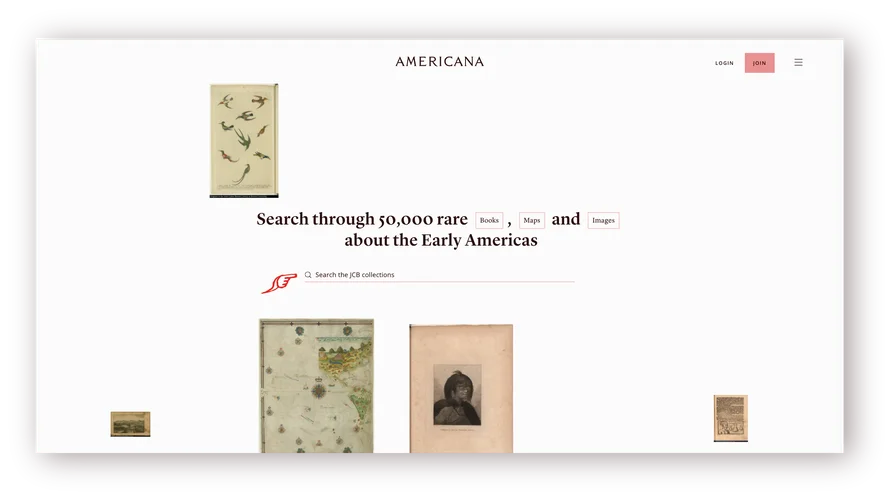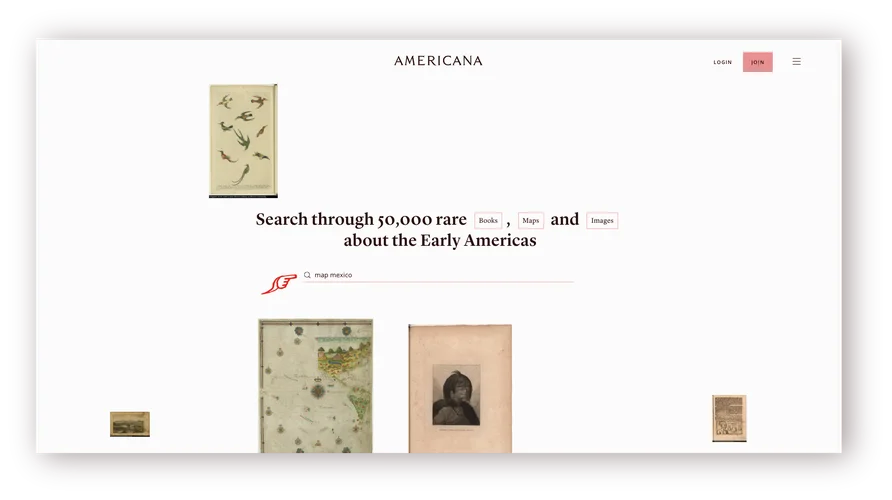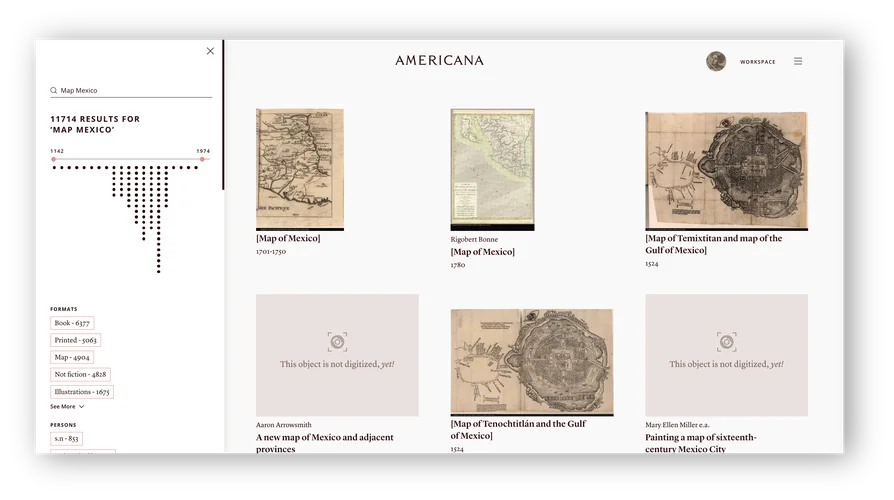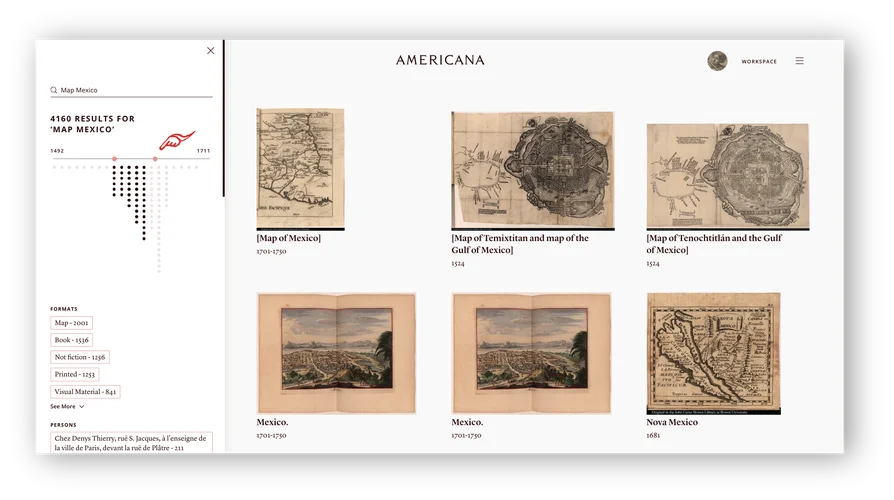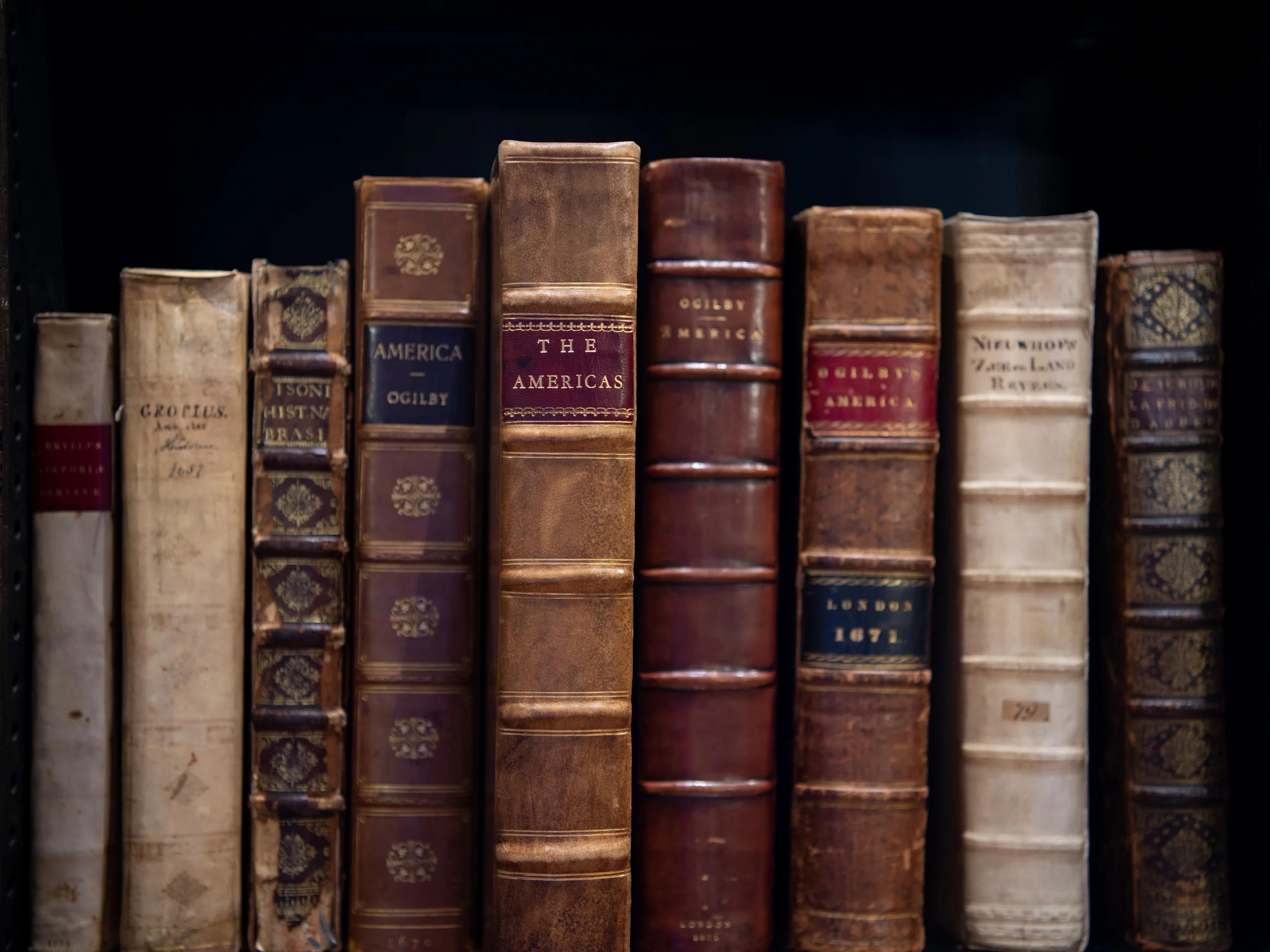
Finding an Item
Specific Searches
Finding a specific book in Americana is easy. Simply type in some words related to the book you're looking for like the title, author, or subject into the search bar and hit enter.
The search engine will try to match the words that you entered with the entire bibliographic information of all items in Americana, and retrieve the best matches.
< 1 of 8 >
General Searches
The more specific you are, the better are the chances of finding the item you're looking for. But you can also search general terms and browse through the results for unexpected findings!
< 2 of 8 >
Keep in Mind
Not all items in the John Carter Brown Library have digital records. This means that the John Carter Brown Library has items that cannot be found in Americana yet — we estimate that around 10% of our collection is not in our digital catalog.
To search these items, readers must access the physical card catalog at the Library, or the many catalogues and exhibitions catalogues produced by the JCB and currently available in digital format.
< 3 of 8 >
Filter
Once that you make an initial search, Americana can retrieve many items based on the words that you used. If that is the case, you can also filter the results of your search using the panel on the left side of the screen.
Americana provides a number of filtering options for you to experiment with:
< 4 of 8 >
Timeline
By adjusting the timeline bar — dragging the little circles in the bar — you can filter the results of your search to a specific time range (for instance, between 1530 and 1580). The JCB collection of rare materials encompasses materials printed from the late 15th century to the early 19th century.
The little circles below the timeline bar represent the proportion of results that you will be able to find when you adjust the timeline.
< 5 of 8 >
You have many options to filter the results of a search using tags...
Format: Allows you to narrow down the search results to a specific format, such as books, printed works, visual materials, maps.
Persons: Allows you to limit the search to specific authors, illustrators, publishers or other people related to items.
Places: Filter results to items published in a specific location.
Subjects: Limits search results to items about a specific topic or theme.
Languages: Refines your search to items written in a specific language. The John Carter Brown preserves materials written in over two hundred languages!
Materials: This filter allows you to search for items based on the physical materials that were used to produce them (such as ink, paper, watercolor, gilt, among others).
Techniques: This filter allows you to search for items based the technique used to create them (such as engraving, woodcut, etching, lithography and many others).
The number next to the each expression in the tags below indicates the results that will be obtained if you filter your search using this criteria. The tags are ordered by the number of potential results. And you can combine different tags for more specific results!
< 6 of 8 >
Searching and Metadata
Both the Search and Filter functionalities are based on keywords that are present in the bibliographic records, which were produced by specialized catalogers through decades of work. Different bibliographic records can have different levels of detail or granularity of information.
For example, some records may only contain basic information such as the title and author, while others may contain additional information such as the summary, subject headings, and physical description. The amount of information included in a bibliographic record can vary depending on the library's cataloging standards at the time that the record was produced.
< 7 of 8 >
Metadata and Language
The language used by catalogers can also vary. Catalogers use controlled vocabularies, including subject headings and classification systems, which can change over time. These controlled vocabularies help to ensure consistency and accuracy in cataloging, but can also lead to differences in the language used in bibliographic records, which can be sometimes outdated and harmful, despite of our best efforts.
Catalogers and curators may also use different terms or phrases to describe the same item, which can affect how search results are displayed and make it more difficult to find specific items in the catalog.
But don't worry: our excellent catalogers are constantly revising old bibliographic records!
< 8 of 8 >
